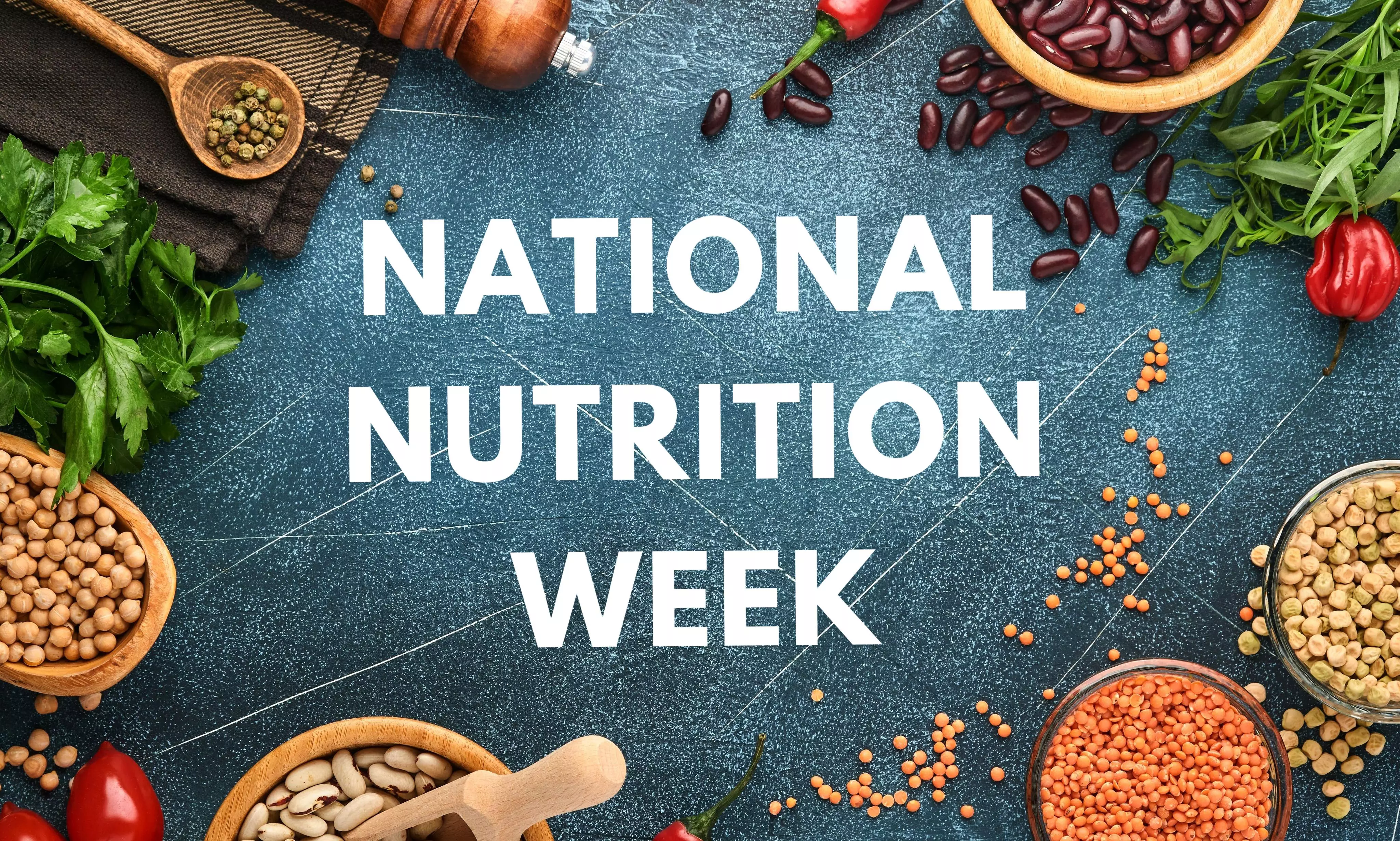This National Nutrition Week, our focus is on healthy habits towards nourishment
Kripa Jalan, a Harvard-trained Nutritionist, talks to us about how one can incorporate a healthy diet and lifestyle to optimise nutrition
- By Natasha KitturLoading...
- | 4 Sept 2022 10:00 AM IST
 X
X
Every year India celebrates the National Nutritional Week from the 1st to 7th September in order to spread awareness regarding the importance of a balanced nutrition and how one can achieve to incorporate such a diet in their life. It is organised by the Food and Nutrition Board by the Women and Child Development. This year the theme for the week is 'celebrate a world of flavours' encouraging individuals to turn towards the varied cuisines of the country itself to secure their daily dose of nutrition.
In our fast paced lives, it is easy to forget the importance of nutrition. We all are in such a hurry to meet deadlines that our meals get cold while resting on the dining table and then, one is no longer in the mood to eat. And add to this mix the internet, a coin with two sides. In a digital world that is full of healthy and fit influencers and trainers, it is easier than ever to fall prey to diet scams and nutrition-based myths. A report by the World Health Organisation (WHO) also states that India is responsible for one third of the global undernutrition population, due to certain markers like population. Before we plunge into the details and terminology of nutrition, let's first address one very important fact. Nutrition is not a one-size-fits-all concept. The nourishment requirements vary from person to person. If one experiences the positive impact of a gluten-free diet, another may find a customised diet more beneficial.
In conversation with Kripa Jalan, a Harvard-trained Nutritionist, we figure the consequences of the diet frenzy that is prevalent on the internet as well as the practices one needs to keep in mind to lead a healthy lifestyle.
Edited excerpts from the interview.
1. What are your thoughts on the diet frenzy, all thanks to the internet?
The internet has made information more accessible as well as easier for misinformation to spread. The diet culture in particular is an example. We're constantly exposed to the next best diet. Every day a new food is demonised to a point where yesterday's medicine has and can become tomorrow's poison. And with that has come a lot of fear. Two points emerge here. One, a big part of wellness is mental health and I do not think there's any place for shame, guilt and anxiety while someone is trying to feel better. Two, what works for someone else, may not work for you. Most importantly, being thin does not qualify one to provide health advice. So, I'd say it's important to tread with caution before trying a diet trend as seen on social media.
2. What is your advice on picking an appropriate diet to maintain a daily balance of nutrition?
For those who are interested, there's a lot of information out there and it can get incredibly overwhelming for an individual to pick out a suitable style of eating through this clutter. While it is important to note that individuals are unique and their care should be too, for the majority of the population, I'd say it's important to pick a diet that integrates into their lifestyle easily—without demanding severe restriction and drastic elimination, unless of course they have a medical condition that demands it.
3. People are quick to give up a diet, when the results are not immediate. What is your advice to such individuals?
Plain and simple, you cannot develop 365 days of health through 21 or 28-day quick-fix programs. More so, a condition rarely develops overnight. Natural medicine i.e. nutrition and lifestyle changes take longer to act than conventional pills. Therefore, it's important to keep at it. Consistency is key here. The good news is that albeit the process is slow, these changes work on the root cause of the illness (in the case of a non-communicable disease) and don't just suppress symptoms as would happen with mainstream medication.
4. What according to you is the best way to ensure optimum nutrition?
For the most part, eat minimally processed food and strive for 80% consistency, with this suggestion. Not necessarily today, but that's the big picture goal. Having a little leniency helps avoid the pressure of being perfect. That's what the 20% leeway is for. You get to make what you want out of it. But let's be clear on what constitutes 80% here. A main part of your diet should consist of whole foods, natural ingredients that come from the soil. Keep boxed or packaged goods out of this equation
5. What according to you would be the easiest way to explain the ill effects of stress on your body and nutrition? And how can one overcome this situation?
This might be the first time you're making this connection, but brain health actually starts in the gut—and that's because the brain and gut are in constant communication with each other. So, your state of mind can affect your gut and vice versa. How does that matter? Your gut is the very place where you digest and absorb food and an imbalance can very easily throw everything offtrack. So managing stress is a big part of also improving your overall wellbeing. I don't think you can get rid of stress, but you can develop a toolkit that helps you deal with it better. Walks in nature, breathwork, meditative music, and creating boundaries with electronics are just a few things that can help.
6. Could you elaborate on how one can build a healthy relationship with food and in turn their body image?
Have you ever seen a toddler eat? They will eat exactly what they want and how much they want – as though guided by an inner nutritionist. The point is we're all born with that intuitive sense but it gets drowned in the diet noise. Step 1: Block it all out. Most of the information we get comes from our friends and family. Who in turn get their advice from their loved ones and so on. Step 2: Let go of calorie trackers and apps that impose food rules. Lean in on your hunger and satiety instead. Know that your body can't talk to you in words, it does so in symptoms. Rely on those. Lastly, let go of the weighing scale. Nutrition has far more benefits than altering your appearance. Think in terms of better energy, reduced risk of illness, improved mood and so on.
7. Any mantras or advice you have followed when it comes to nutrition?
Off the top of my head, i have always believed in 'less is more'. I don't believe in food rules that tell you what, when, how, and how much you can and cannot eat. Because, chances are if you have one, you have many. And owing to real life, when one breaks – you suddenly have nothing left to guide you. Fundamentally, the more you tell someone not to eat something, the more they'll think about it. So, I think it's important not to overcomplicate nutrition, especially if you're in it for the long run.
Looking at the concept of nutrition with a whole new perspective, one realises that it has less to do with restriction and removal and more to do with simply listening to your body. After all, the forbidden fruit was the cause of temptation. Rather than mindlessly hopping onto the next diet trend that falsely guarantees a number of benefits, we might as well learn to listen to how and what our body communicates with us.
This article provides general information and discussions about health, nutrition and related subjects. The information and other content provided in this, or in any linked materials, are not intended and should not be construed as medical advice, nor is the information a substitute for professional medical expertise or treatment.

Natasha Kittur
Natasha Kittur is an aspiring writer. Her love for anything with cheese and spice is profound, but a white sauce pasta always tops her list. In her free time you will catch her reading or watching crime books and shows or go on and on about psychological experiments and theories. She aims to write a book in the fictional genre someday.


